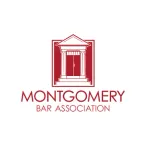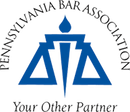Montgomery County, PA Bankruptcy Attorney
Facing overwhelming debt or foreclosure? You’re not alone. Our experienced team in Blue Bell, PA, offers compassionate, expert guidance to help you reduce or eliminate your debt and start fresh. Take control of your financial future today.
Relief from Debt & Foreclosure Worries
You’ve been trying to deal with your financial problems on your own, or maybe you’ve just felt so overwhelmed that you have tried to ignore the problems. Maybe you have been sued by your creditors, and maybe your home is in foreclosure, you are behind in your taxes or judgments have been entered. Maybe your debts are out of hand. Maybe you have been sued by your creditors, and maybe your home is in foreclosure. You may feel worried, stuck, or paralyzed with fear. No matter how you got here, and no matter how bleak it seems, you are not alone. You’ve come to the right place
Read More
I have helped many people in your situation to protect their property and greatly reduce or eliminate their debt. I’ll assess your situation expertly and honestly, then tell you if bankruptcy is a good solution for you. If it is, then this is the first step to regaining control of your finances and building a new life. With me as your attorney, you will be in good hands.




A Trusted Montgomery County Bankruptcy Attorney.
Every year, hundreds of thousands of regular people file for bankruptcy in the United States. In my 32 years of experience, I’ve gained great compassion and respect for my clients who have fallen on hard times, usually through no fault of their own. Bankruptcy is not a failure or a disgrace. It is a legal tool which enables people to find relief after financial hardship drives them into debt.
You Can Have a Fresh Start
If we determine that bankruptcy is a good fit for you, then this 3-4 month process will help you regain control. You’ll be able to start over. Imagine the relief you’ll feel without debts hanging over your head! You will feel relieved and comforted, organized and prepared for your financial future. You may even begin to have some disposable income to put aside in savings.
How to Begin
Call me! There is no fee and no commitment required for this phone call, so you have nothing to lose. In fact, your first in-person consultation is free as well. I never charge a fee for that, and I have plenty of time to listen to your situation.
About Me
I am Albert J. Scarafone, Esquire. I am a member of the Pennsylvania Bar Association, the Montgomery County Bar Association and the Eastern District of Pennsylvania Roundtable.
I have practiced bankruptcy law for over 32 years. In all that time, I’ve never had a client who was denied a discharge.
I'm Not Your Typical Attorney
Professional Background
I graduated from Villanova University with a degree in finance and worked as a financial analyst in the commercial lending field. After I obtained my law degree from Widener University School of Law, I worked for two law firms where I practiced bankruptcy law. In 1994, I formed a law firm with Harvey Friedland and Timothy Hill. We are based in Bluebell, Montgomery County, Pennsylvania.
Bankruptcy Law Practice
I enjoy practicing bankruptcy law because I love getting good results for my clients. It’s very satisfying to help people get rid of debt, reorganize their lives, and start fresh. Happily, with my decades of experience and well-honed skills, I am able to do just that. I’ve done it for countless other clients, and if bankruptcy is a good fit for your situation, I can do it for you too. I can understand where you are coming from and how you feel. Trust me, and you’ll start to feel better!
What to Expect
Once you call me...

If your debt is discharged under Chapter 7 of the Bankruptcy code, this whole process from start to finish usually takes only about 3-4 months.
If your petition under Chapter 13 of the Bankruptcy Code is successful, you will begin making payments on a manageable payment plan which lasts 3-5 years.
We set up an appointment for an in-person consultation at no cost to you.
I coach you through organizing your financial documents so we can assess your situation.
I tell you honestly what your options are.
You make the decisions.
If bankruptcy is the right path for you, then you can retain me for a reasonable flat fee.
You will also undergo credit counseling from an approved nonprofit budget and credit counseling agency.
I will draft a petition of bankruptcy for you to review and sign.
I will file the petition with the court on your behalf.
I will prepare you for your meeting with the trustee of the court.
I will be with you for that meeting.
If your petition is granted, your debts will be discharged.
My Promises
Professional expertise
I will navigate you through these waters and give you my best effort.
Honesty
I will always deal with you honestly. If I don’t think I can get you through this process successfully, then I will not take your money.
Transparency
My fees are clear and will not change without your knowledge and agreement. Once you have paid my flat fee, you can call me as often as you need to without racking up extra charges.
YOU ARE NOT ALONE.
We've created an outline of the bankruptcy assistance process in plain english to help you understand what it's like to work with us. This resource is free of charge and designed to do three things.
✔ Bring clarity to the bankruptcy process
✔ Put your mind at ease
✔ Picking the right attorney for your situation
Ready for a New Beginning?
Take that first, vital step towards financial recovery and a debt-free life. Contact me today for a free consultation. This is more than just a meeting; it’s the beginning of crafting a tailored strategy to rejuvenate your financial health. You’ve carried the burden of debt long enough—let’s start lifting that weight off your shoulders. Together, we can pave the way towards a brighter, more secure financial future.
Don't wait to reclaim your peace of mind.
Call me at 610-275-4000 or visit our office at 1717 Swede Road, Suite 200, Blue Bell, PA, 19422-3372. Take the first step towards a fresh start — reach out today.



